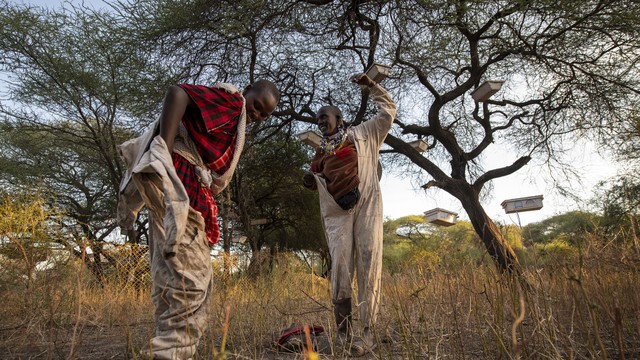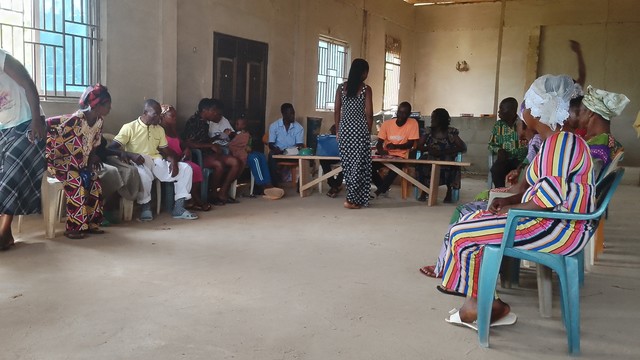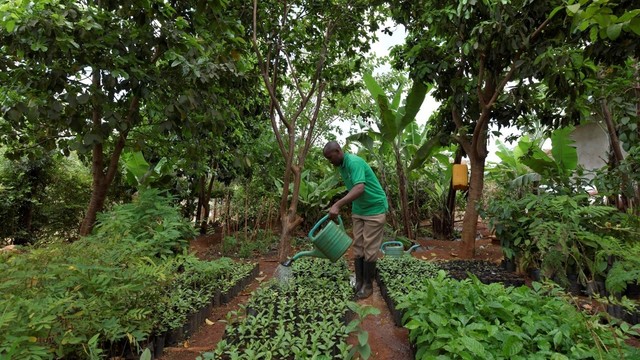Provocation 1: Producer agency and the agenda to make markets work for the poor
The first of a series of ‘provocative seminars’ on smallholders and the ‘pro-poor markets’ agenda took place in The Hague, the Netherlands, on 28 September 2010.
Local and international participants gathered to discuss a series of questions put forward by ‘provocateurs’ from Africa, Asia and Latin America. These questions included:
- Has small producer ‘agency’ — the ability of smallholders to position themselves and make effective choices — been overlooked in the push to make markets work for the poor?
- How are small farmers engaging with pro-poor market interventions and how are they trying to influence this powerful external agenda?
- What are the principles and practices for building producers’ and communities’ capacity to make good choices and shape agendas?
- What kinds of policies are needed to enable these principles and practices?
Organised by Hivos, the International Institute for Environment and Development (IIED) and Empowering Smallholder Farmers in Markets (ESFIM), the seminar was a side event at the Hivos Conference on Knowledge and Change: Theory and practice of development dilemmas.
Inciting insights
The three-hour long debate proved exciting as a string of Hivos’ partners and guest speakers challenged conventional beliefs and brought fresh insights and key perspectives to the floor.
Sudhirendar Sharma of Knowledge Network for Rural Development in Asia/Pacific Region (ENRAP-India), from India — one of the world’s oldest democracies and now a major global player in the global economy — demystified the ‘value chain’ approach to fighting poverty, which aims to increase incomes by improving productivity and competitiveness of all producers, including small ones, but without taking into account other factors such as long-term social or environmental impacts. Sharma called for a more holistic, livelihoods-based approach that takes into account the greater vulnerability, depletion of resources and higher food insecurity that small farmers face when forced into export production in value chains.
Lorenzo Castillo of Junta Nacional del Café (JNC), from Peru, described a rising ‘revolt of coffee producers’ against the fair trade movement. Fair trade has, said Castillo, moved away from its founding principles of empowering producers. In doing so, it has changed from being an opportunity for small-scale farmers to improve their lives into a threat to their ‘agency’.
Diego Muñoz of the Mainumby Nacurutu Research Centre – Bolivia, Global convenor of the Learning Network 'Small producers’ agency in globalised markets', highlighted the conflict between politics and economics when it comes to producer agency in his country. Small-scale producers — and indigenous people in Bolivia more broadly — have become major political actors in recent years. For example, the president, Evo Morales, is himself of indigenous Aymara descent. But penetrating the State’s highest circles of power has not meant favourable policies for small-scale producers; they are not yet recognised as major economic actors.
Falguni Guharay Servicio de Informacion Mesoamericano sobre Agricultura Sostenible (SIMAS), Nicaragua, highlighted the impact of international trade agreements and his government’s weakness in negotiating these with the United States. The lack of clarity in the Nicaragua-US agreement has had a harmful impact on small farmers and consumers. White corn — a key product for small farmers and consumers in Nicaragua — was not included in the agreement, to protect local producers. But Americans have instead flooded the country with a 'yellow bleached' corn and small-scale producers of white corn cannot compete with the cheap imported alternative. Nicaragua’s milk industry is similarly collapsing because of its free trade agreement with the European Union.
Mohamed Shariff of the Kabarole Research and Resource Centre (KRC) - Uganda, was also concerned about trade agreements. He said that the new Eastern African economic and trade community and other trade agreements would put lots of pressure on small-scale Ugandan producers to compete with imported goods. He also argued that while value chains can raise incomes for some small-scale producers, this doesn’t mean they lead to ‘agency’, because many interventions do not look at farmers’ households with a poverty alleviation perspective.
Questions questioned
Following the contributions from these ‘provocateurs’, participants were invited to put forward their own thoughts and experience to the debate. We heard voices from across the world. It’s difficult to capture all of the great input, comment and criticism raised in this stimulating seminar, but some of the major questions raised include:
- Why should we focus on fair trade if conventional markets can assure better prices?
- Why should we focus on commodities and export markets when rapid urbanisation means that domestic ones are growing?
- How can we address market failures? Are fair trade standards still the ‘good’ standards?
- Aren’t we overlooking the role of the state with the new ‘trendy’ markets and value chains approach?
- How can we integrate individual expectations in collective actions?
- What about the non-organised small-scale producers which form the majority?
- Are we concentrating too much on the ‘external agenda’ and not enough on how small-scale producers are shaping this agenda and what mechanisms they are using?
- Are we seeing how real ‘agency’ works — for example, what makes small-scale producers sell their votes?
- Is removing people from farming the best way to development?
- Have we had to shift from markets for the poor to markets with the poor?
- How can we deal with farmers’ demands for opportunities, not charity, in national policies dealing with subsidies in other countries?
- Is the value chain approach and practice synonymous with small-scale producers’ emancipation? We need evidence.



